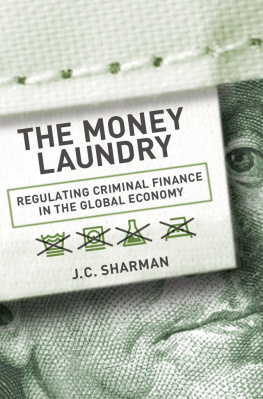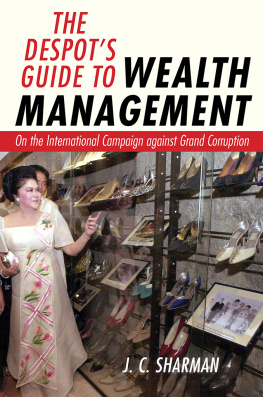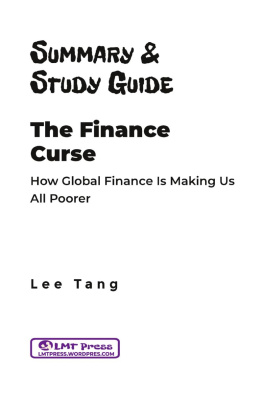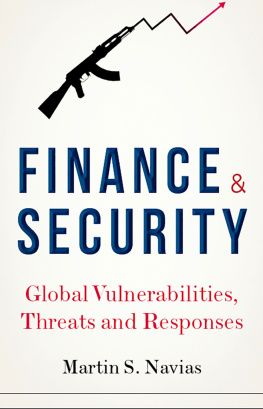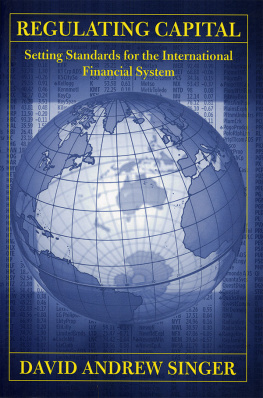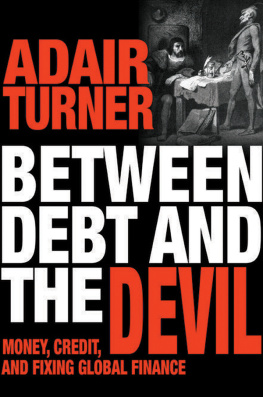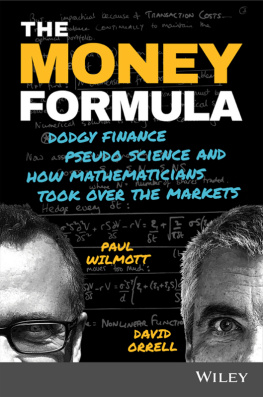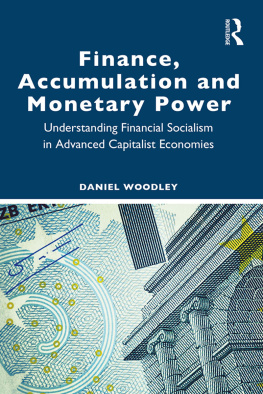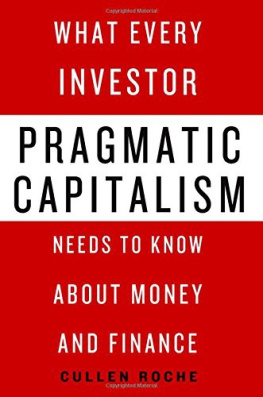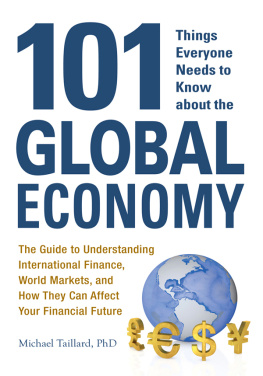A CKNOWLEDGMENTS
This book grew out of an earlier interest in tax havens. I traveled from island to island conducting interviews about a campaign led by the Organization for Economic Co-operation and Development (OECD) to impose global tax regulations. While those I met with were concerned about this campaign, they stressed that the institution that really scared them was an obscure body called the Financial Action Task Force, which is in charge of enforcing anti-money laundering standards.
My curiosity on this subject was further piqued in performing policy work with the Commonwealth. It became clear that introducing regulations to counter money laundering imposed serious costs on developing countries, while the benefits were elusive. Strangely, although regulators and those in the financial sector would accept this conclusion about prominent costs and nebulous benefits, they nevertheless argued that these regulations were a good thing, or at least an inevitable fact of life. Many of those I spoke with in powerful Western governments and international organizations were either bemused or annoyed when asked if the regulations really worked or what costs they imposed. These questions were regarded as a waste of time, as they suggested that countries and firms had a choice about adopting the standard set of regulations on money laundering. In fact, they did not. Given the novelty of money laundering as a policy concern, how had this sense of inevitability come about?
The final element that provoked my interest was the extent to which institutions and policies in disparate countries faithfully, perhaps even slavishly, followed foreign models, based on a willing suspension of disbelief about these models fit with local circumstances. Whether I was stuck in Nauru after the only plane broke down, or listened to Tanzanian or Malawian policymakers, or observed the destroyed capital and airport of Montserrat, I thought it was plain to see that these countries have incredibly pressing problems aside from financial crime. Yet addressing these problems often gives way to the perceived imperative to keep up appearances for outside audiences concerned about anti-money laundering policy.
In investigating these puzzles, I have accumulated extensive debts to a great number of people, many of whom would vigorously disagree with the books conclusions. I am grateful to Cheryl Bruce and Andreas Antoniou for generously establishing several invaluable linkages at the beginning of the project. Percy Mistry was a huge source of support to me at several difficult points. His robust willingness to take the fight to those who tried to massage or suppress inconvenient evidence is particularly important for material in chapter 2. Emile van der Does de Willebois, Stuart Yikona, Arun Kendall, Peter Ritchie, and Rita OSullivan were similarly very generous in allowing me to look inside the policy machine at different points. I am fortunate to have had access to extremely knowledgeable sources in the private sector with the patience to deal with questions from the ivory tower, and here I particularly thank Richard Hay, Bruce Zagaris, and David Spencer. I am also grateful to the many other individuals who agreed to be interviewed for this book.
The growing community of scholars researching money laundering has been uniformly welcoming in sharing both their insights and their doubts. I particularly acknowledge the help and feedback received from David Chaikin, Michael Levi, and William Gilmore. Richard Gordon straddles the worlds of policy and academia with enviable ease, and I am in his debt for insights from both domains, as well as the support of his students at Case Western Reserve University (Alexis Parker, Parinya Kaewmanee, Nicole Raimo, Aimara Martinez, Pratibha Gupta, Iris Colmenares, and especially Avinash Chak) for half the solicitations in chapter 3. In academia more generally, Kate Weaver and Jacqui Best helped to firm up the argument, and Len Seabrooke also hosted two exceptionally useful workshops at the Copenhagen Business School. Stefano Guzzini and Iver Neumann put together a highly stimulating workshop on the diffusion of authority in global governance, which again advanced my thinking. Additional thanks go to those organizing and participating in seminars at the University of Miami, College of William and Mary, American Bar Association, Society of Trust and Estate Practitioners, Australian National University, and University of Queensland.
My colleagues at Griffith University have provided me with the ideal environment in which to pursue the research that has gone into this book, offering a wealth of constructive feedback in seminars and over coffee. Particular thanks are due to Pat Weller at the Centre for Governance and Public Policy and Michael Wesley, formerly director of the Griffith Asia Institute. Also at Griffith I have had excellent research support from Vanessa Newby and Stephen Martin, and especially Jo-Anne Gilbert and Lee Morgenbesser, whose efficiency and diligence have been a huge help at every stage.
Speaking of following the money, I gratefully acknowledge the financial support of Australian Research Council Discovery Grants DP0771521 and DP0986608. Without this money, the primary research informing this book would have been impossible. I also acknowledge supplementary financial support from the Faroe Islands Research Council.
Roger Haydon has again proved to be the ideal editor; he is gracious, straightforward, and efficient. Two anonymous reviewers took a great deal of time to carefully engage with the manuscript, identify shortcomings, and suggest numerous improvements.
Finally, as ever, my biggest thanks go to Bilyana, for putting things in perspective.
Introduction
Policy Diffusion and Anti-Money Laundering
The worlds sovereign states are characterized by their diversity. From continent-spanning federations to tiny islands, they range from fantastically rich to shockingly impoverished and encompass societies that may be incredibly variegated or relatively homogenous. Yet states increasingly adopt the same institutions and policies, seemingly regardless of their numerous and fundamental differences. This book examines a puzzle that exemplifies this coincidence of sameness and diversity: more than 180 states, large and small, rich and poor, have adopted a standard set of anti-money laundering policies, apparently without reference to local conditions. Why would so many countries that are so different adopt the same policy?
The strangeness of this situation is epitomized by the extreme instance of Nauru. A minute, bankrupt Pacific island republic with a population of 11,000, Nauru has adopted a state-of-the-art policy template designed to keep criminal money out of the financial sector. But Nauru has no financial sector of any kind: no banks, no credit cards, no loans, no currency, no insurance. Nevertheless, a quarter of the legislation passed by the parliament since 2003 has been designed to protect the nonexistent financial sector from money laundering. There are currently officials in Nauru paid to supervise and educate any financial institutions that may in future arise regarding their responsibility to counter money laundering. In the interim, these officials are busily responding to international surveys of their activity by entering long columns of zeros and N/As, as well as attending capacity-building workshops and plenaries abroad. Meanwhile, the country has no shortage of immediate problems, from a debt of more than 1600 percent of gross domestic product (GDP), to 90 percent unemployment, to the worlds highest rate of obesity and type 2 diabetes, to the fact that most of the islands surface has been rendered uninhabitable by phosphate mining. If local needs and priorities cannot explain why a country like Nauru would adopt such an obviously redundant policy, what can? The answer that this book develops is that a large majority of states have been pressured to adopt a standard policy template by the exercise of new, indirect, but nevertheless very effective forms of global coercion.

